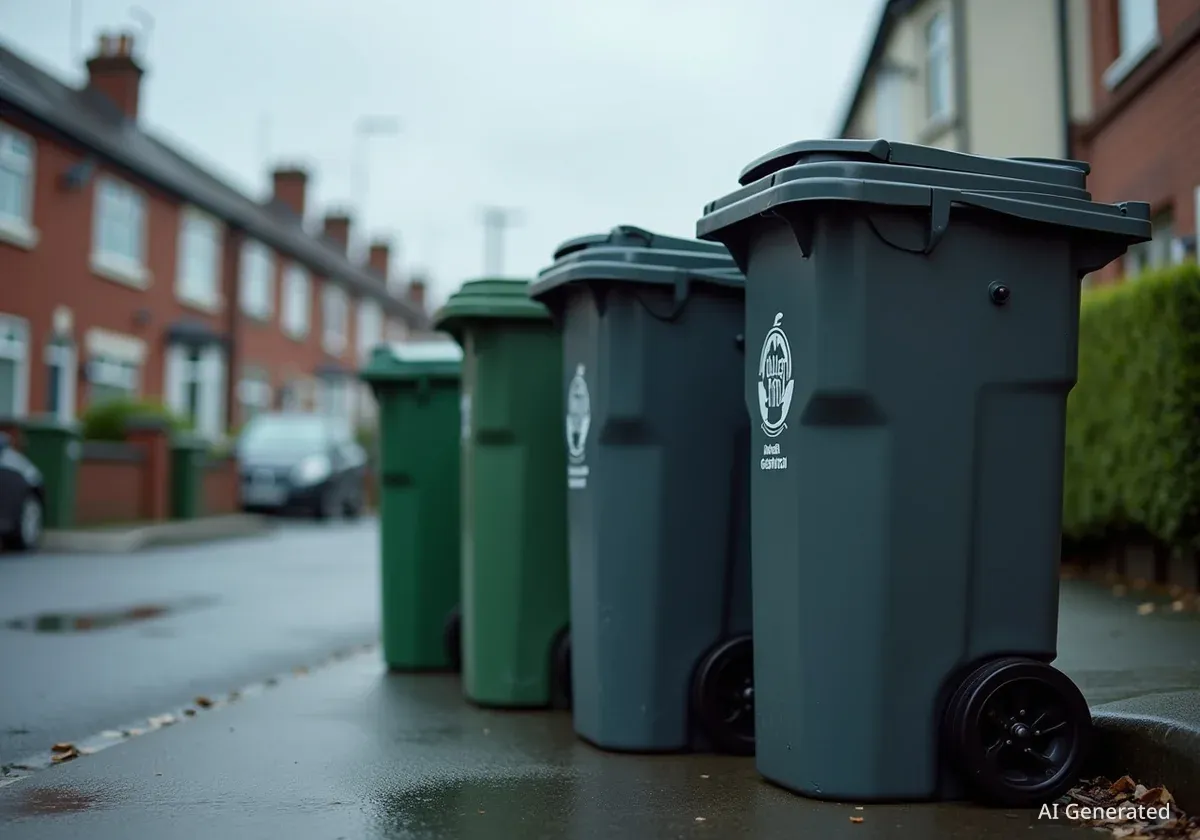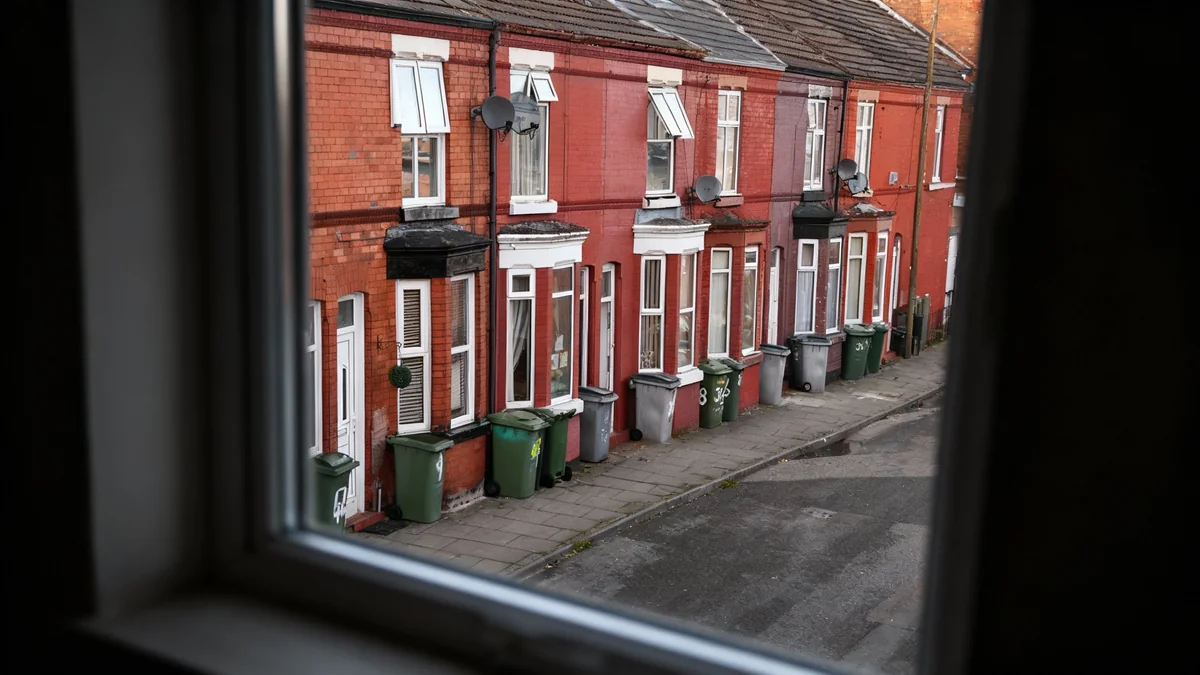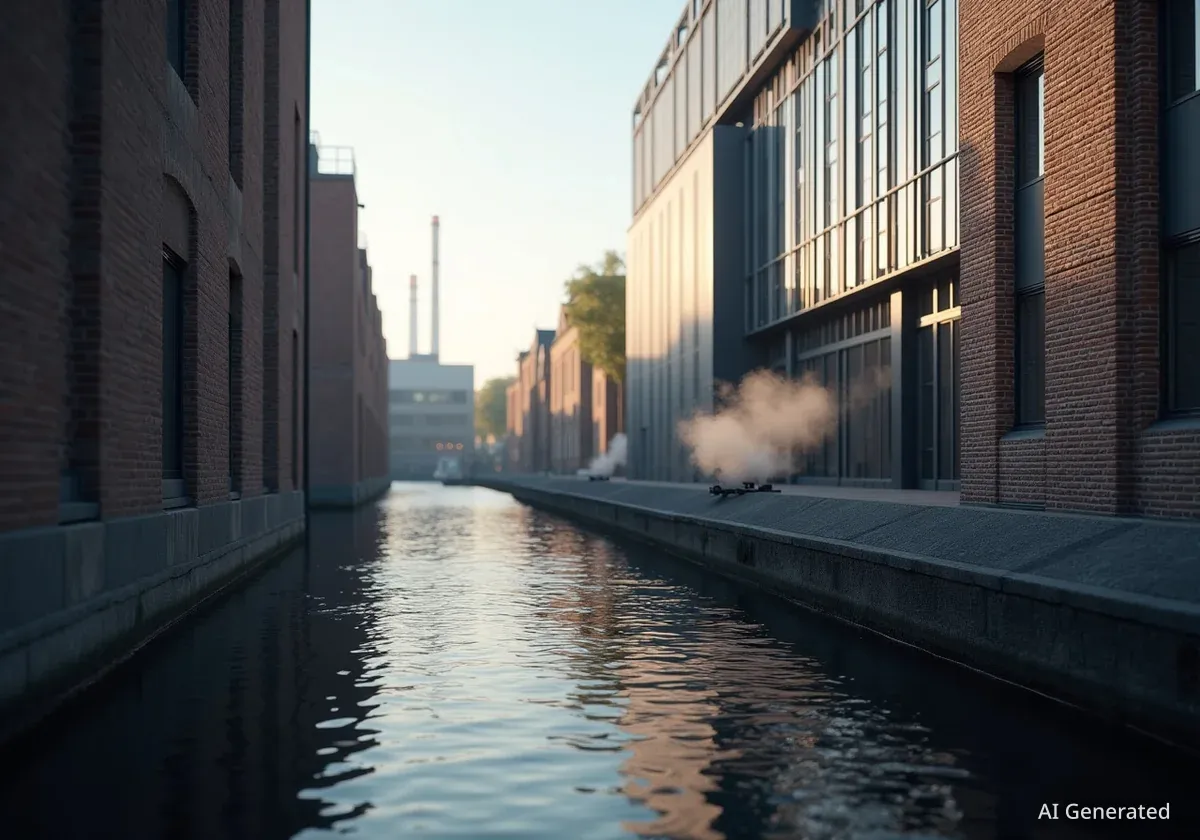The Merseyside Recycling and Waste Authority (MRWA) has outlined its delivery plan for significant changes to household waste collections, set to be implemented by April 2026. The new system, mandated by national legislation, will introduce mandatory food waste recycling for every home across the region, alongside other measures aimed at boosting recycling rates.
Key Takeaways
- Mandatory food waste collections will be introduced for all Merseyside households by April 2026.
- Each home will receive two dedicated food waste caddies: a small one for indoors and a larger one for outdoor collection.
- Four sites at Bidston, Huyton, Southport, and Gillmoss have been designated to process the collected food waste.
- Merseyside's overall recycling rate in 2024 was 35.3%, with Wirral's rate at 31.1%.
- A deposit return scheme for bottles is being considered for introduction in October 2027.
New Food Waste Collections Explained
A major change is on the horizon for how households in Merseyside manage their rubbish. By law, all councils in England must provide separate food waste collections by April 2026. This initiative stems from the Environment Act 2021, which aims to standardize recycling practices and significantly increase national recycling rates.
For many residents, this will be a new process. While St Helens council already offers a food waste service, most other boroughs in the region will be adopting it for the first time.
How the System Will Work
The plan detailed by the MRWA confirms that every household will be supplied with two containers, known as caddies. A smaller caddy is intended for use inside the kitchen to easily collect food scraps.
A second, larger caddy will be kept outside. Residents will transfer the waste from the indoor caddy to the outdoor one, which will then be put out for regular collection alongside other recycling bins. This system is designed to keep food waste secure and separate from general refuse.
Why Separate Food Waste?
Separating food waste prevents it from ending up in landfills, where it decomposes and releases methane, a potent greenhouse gas. Instead, the collected food waste will be processed through anaerobic digestion, a process that creates biogas for energy and a nutrient-rich fertiliser for agriculture.
Infrastructure and Processing Logistics
To manage the new stream of organic waste, a robust infrastructure plan has been put in place. The MRWA has contracted waste management firm Veolia to handle the transfer, transport, and treatment of all food waste collected across Merseyside until 2029.
Four key sites have been designated to receive and process the materials. These strategic locations are at Bidston, Huyton, Southport, and Gillmoss, ensuring coverage across the city region.
Site Development and Approval
Significant progress has already been made on preparing these facilities. According to the delivery plan, planning permission has been approved for the necessary works at the Bidston, Huyton, and Southport sites, with construction expected to begin later this year.
The final site at Gillmoss received its planning permission at the end of September, completing the approvals needed to move forward with the region-wide project. These developments are crucial for ensuring the facilities are fully operational ahead of the 2026 deadline.
Waste by the Numbers
In 2024, the Merseyside Recycling and Waste Authority processed a total of 744,556 tonnes of waste from households across the region. The introduction of food waste collections is expected to divert a significant portion of this from landfill.
Future Recycling Initiatives on the Horizon
The introduction of food waste collection is part of a broader strategy to improve recycling and reduce litter across Merseyside. The MRWA's corporate plan also details other potential schemes set for the coming years.
Deposit Return Scheme
Authorities are actively considering a deposit return scheme (DRS) for drink containers, which could be introduced as early as October 2027. Similar schemes have been highly effective in other European countries, some achieving return rates as high as 98%.
Under a DRS, consumers pay a small deposit when buying a drink in a bottle or can, which is refunded when they return the empty container to a collection point. This incentivises recycling and dramatically reduces litter.
Plastic Film Collections
Another upcoming change is the mandatory collection of plastic film. Councils will be required to collect materials like plastic bags, bread bags, and food wrapping by March 2027. This targets a common and often hard-to-recycle type of household plastic.
Merseyside's Current Recycling Performance
The new measures are intended to address historically low recycling rates in parts of the region. In 2024, the average recycling rate for the whole of Merseyside was recorded at 35.3%.
However, performance varies between boroughs. The report highlighted that the Wirral's recycling rate was lower than the average, standing at 31.1%. Authorities hope that the standardized, mandatory collection systems will create a more consistent and improved performance across all areas.
"These updates are part of the delivery plan for the Merseyside Recycling and Waste Authority’s corporate plan, which sets out how the RWA plans to deliver its services managing waste across Merseyside over the next five years."
The comprehensive plan, presented to councillors, signals a clear direction for waste management in the region, focusing on legislative compliance, improved recycling, and greater environmental responsibility for years to come.





